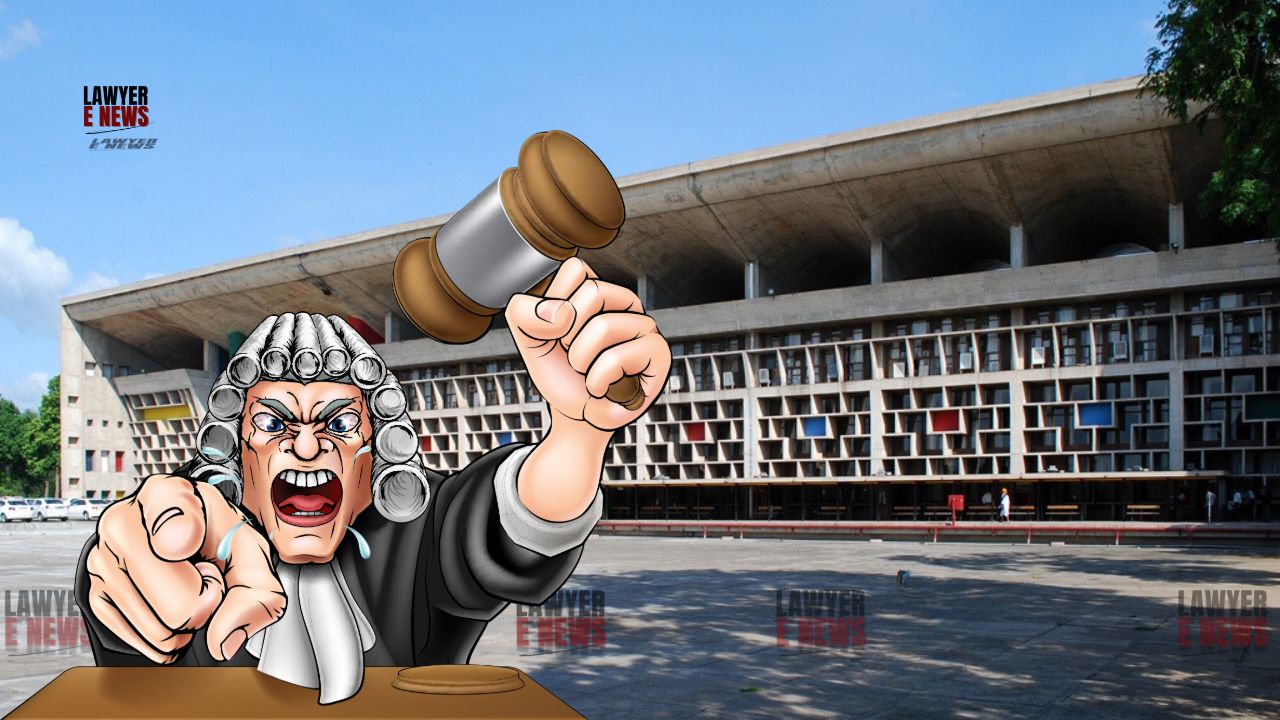-
by Admin
15 February 2026 5:01 PM



The Punjab and Haryana High Court recently dismissed a review application filed in the case of Yuvraj Singh v. Harninder Singh & Another, highlighting the misuse of legal procedures by changing counsel to re-argue cases already decided. Justice Alka Sarin, who presided over the case, emphasized the importance of maintaining the sanctity of court proceedings and imposed exemplary costs on the petitioner for attempting to re-litigate a matter that had already been adjudicated on merits.
The petitioner, Yuvraj Singh, had previously filed a civil revision petition (CR-606-2024) challenging the order dated January 6, 2024, passed by the Appellate Authority. The order had fixed mesne profits and directed the petitioner to pay them within a month. On February 5, 2024, the High Court partially allowed the petition, modifying the payment conditions and directing the profits to be deposited in a Fixed Deposit (FDR) instead of being directly paid to the landlord. Despite this decision, the petitioner filed a review application, represented by a new counsel, seeking to re-argue the case on its merits.
Misuse of Legal Procedures: Justice Alka Sarin observed that the review application was an improper attempt to re-litigate the case by changing counsel. The court noted that the case had been argued on merits by the original counsel, and there was no justifiable reason for the new counsel to file a review application. The court cited the Supreme Court’s disapproval of such practices in several judgments, including T.N. Electricity Board & Anr. V. N. Raju Reddiar & Anr., where it was held that filing a review petition with a new counsel without obtaining a “No Objection Certificate” from the previous counsel is detrimental to the integrity of the legal profession.
Re-litigation Not Permitted: The court emphasized that review petitions are not intended for re-arguing matters on their merits but are meant to address errors apparent on the face of the record. The review application in this case, however, was found to be an attempt to reargue the matter, which the court deemed impermissible. Justice Sarin stated, “The case was argued on merits and was decided on merits; hence no ground is made out to entertain the present review application.”
The court reaffirmed the principle that once a case is decided on its merits, a review petition cannot be used as a tool to reargue the same case, particularly when there is no apparent error in the judgment. The court underscored that such practices undermine the efficient administration of justice and are contrary to the ethical standards expected of legal practitioners.
Justice Alka Sarin, in a strong rebuke to the petitioner’s approach, remarked, “This practice of changing the advocates and filing repeated petitions should be deprecated with a heavy hand for the purity of administration of law and salutary and healthy practice.”
The dismissal of the review application by the Punjab and Haryana High Court serves as a stern warning against the misuse of judicial processes to re-litigate settled matters. By imposing a cost of Rs. 20,000 on the petitioner, to be deposited with the Chandigarh Legal Services Authority, the court has reinforced the message that such conduct will not be tolerated. This judgment is likely to have significant implications for future cases, ensuring that the sanctity of court proceedings is upheld.
Date of Decision: 12.08.2024
Yuvraj Singh v. Harninder Singh and Another
